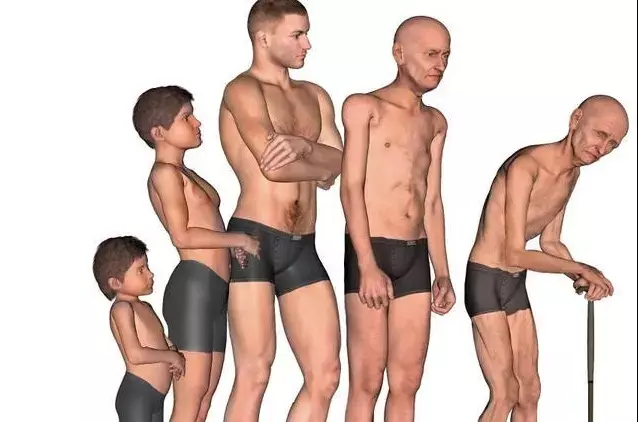- Home
- Medical news & Guidelines
- Anesthesiology
- Cardiology and CTVS
- Critical Care
- Dentistry
- Dermatology
- Diabetes and Endocrinology
- ENT
- Gastroenterology
- Medicine
- Nephrology
- Neurology
- Obstretics-Gynaecology
- Oncology
- Ophthalmology
- Orthopaedics
- Pediatrics-Neonatology
- Psychiatry
- Pulmonology
- Radiology
- Surgery
- Urology
- Laboratory Medicine
- Diet
- Nursing
- Paramedical
- Physiotherapy
- Health news
- Fact Check
- Bone Health Fact Check
- Brain Health Fact Check
- Cancer Related Fact Check
- Child Care Fact Check
- Dental and oral health fact check
- Diabetes and metabolic health fact check
- Diet and Nutrition Fact Check
- Eye and ENT Care Fact Check
- Fitness fact check
- Gut health fact check
- Heart health fact check
- Kidney health fact check
- Medical education fact check
- Men's health fact check
- Respiratory fact check
- Skin and hair care fact check
- Vaccine and Immunization fact check
- Women's health fact check
- AYUSH
- State News
- Andaman and Nicobar Islands
- Andhra Pradesh
- Arunachal Pradesh
- Assam
- Bihar
- Chandigarh
- Chattisgarh
- Dadra and Nagar Haveli
- Daman and Diu
- Delhi
- Goa
- Gujarat
- Haryana
- Himachal Pradesh
- Jammu & Kashmir
- Jharkhand
- Karnataka
- Kerala
- Ladakh
- Lakshadweep
- Madhya Pradesh
- Maharashtra
- Manipur
- Meghalaya
- Mizoram
- Nagaland
- Odisha
- Puducherry
- Punjab
- Rajasthan
- Sikkim
- Tamil Nadu
- Telangana
- Tripura
- Uttar Pradesh
- Uttrakhand
- West Bengal
- Medical Education
- Industry
Inadequate vitamin D intake tied to increased sarcopenia risk in ageing males: Study

Insufficient levels of Vitamin D is significantly tied with increased vulnerability to developing sarcopenia in ageing population especially males suggests a study published in the journal of nutrition, health & ageing.
Sarcopenia is a condition associated with progressive loss of skeletal muscle mass and function resulting in substantial negative health outcomes and disability in older adults. It is thus important that sarcopenia-related risk factors be explored. The present study was based upon the Asian Working Group on Sarcopenia 2019 (AWGS2019) criteria to assess whether vitamin D levels are a risk factor associated with sarcopenia in various ethnic groups in western China.
A cross-sectional study was conducted by a group of researchers from China and included the communities in Yunnan, Guizhou, Sichuan, and Xinjiang provinces. They included a total of 4236 individuals that were 50 years of age or older from the West China Health and Ageing Trend (WCHAT) study.
The researchers used an InBody 770 instrument was used for bioimpedance-based analyses of muscle mass, while a digital grip strength dynamometer was used for handgrip strength-based measurements of muscle strength. Physical performance was assessed based upon gait speed over 4 m. Other secondary variables were additionally analyzed as potentially relevant risk factors.
The results of the study are as follows:
- Sarcopenia affected an estimated 22.45% of studied individuals who were 50 years of age or older.
- Rates in males and females were 26.66% and 20.05%, respectively. In males, a significant difference in vitamin D levels was detected when comparing individuals with and without sarcopenia, although no such relationship was detected in females.
- Following adjustment for confounding variables, binary logistic regression analyses revealed that inadequate vitamin D was able to independently predict sarcopenia risk only in males.
Thus, the researchers concluded that among middle-aged and older adults of multiple ethnicities in western China, we found that inadequate vitamin D was an independent predictor of sarcopenia risk specifically in males.
Reference:
The Relationship between Sarcopenia and Vitamin D Levels in Adults of Different Ethnicities: Findings from the West China Health and Aging Trend Study by Chen L et. al published in the journal of nutrition, health & ageinginadequate vitamin D intake associated with increased sarcopenia risk in ageing males: Study.
Dr. Shravani Dali has completed her BDS from Pravara institute of medical sciences, loni. Following which she extensively worked in the healthcare sector for 2+ years. She has been actively involved in writing blogs in field of health and wellness. Currently she is pursuing her Masters of public health-health administration from Tata institute of social sciences. She can be contacted at editorial@medicaldialogues.in.
Dr Kamal Kant Kohli-MBBS, DTCD- a chest specialist with more than 30 years of practice and a flair for writing clinical articles, Dr Kamal Kant Kohli joined Medical Dialogues as a Chief Editor of Medical News. Besides writing articles, as an editor, he proofreads and verifies all the medical content published on Medical Dialogues including those coming from journals, studies,medical conferences,guidelines etc. Email: drkohli@medicaldialogues.in. Contact no. 011-43720751


